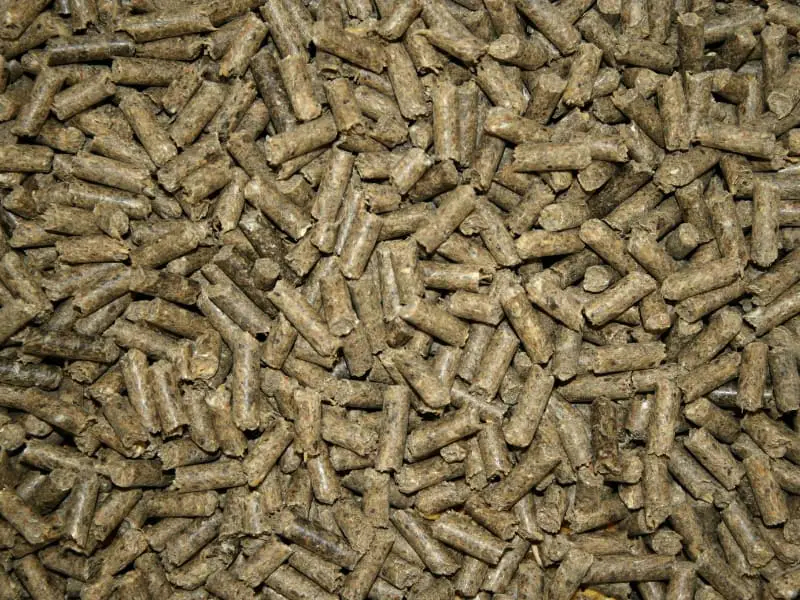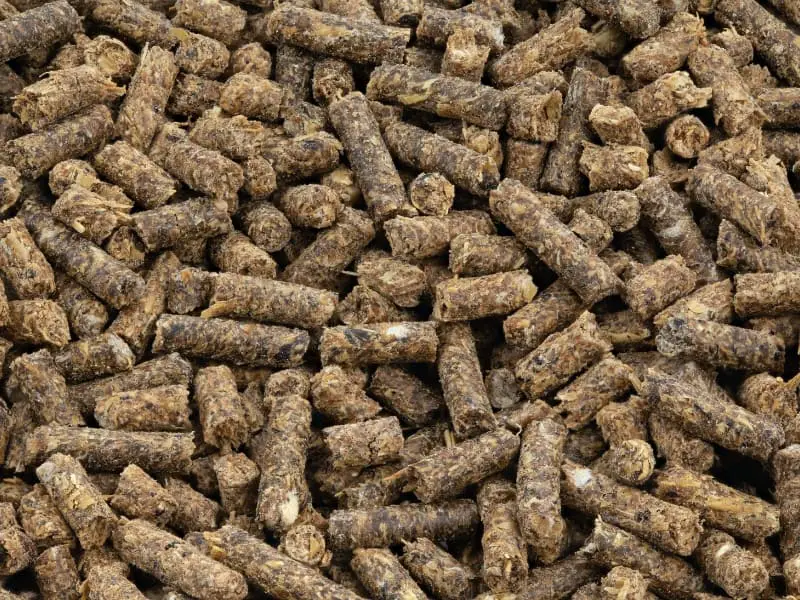Rabbits and guinea pigs are popular pets that are often kept together. They share many similarities in terms of their care requirements, but one question that often arises is whether rabbits can eat guinea pig food. The answer to this question is not straightforward and requires careful consideration.
While both rabbits and guinea pigs are herbivores, they have different nutritional needs. Guinea pig food typically contains higher levels of vitamin C than rabbit food, as guinea pigs cannot produce this vitamin themselves. In contrast, rabbits require a higher fiber content in their diet than guinea pigs. Therefore, feeding a rabbit a diet designed for guinea pigs could lead to nutritional imbalances and health issues.
What happens if a rabbit eats guinea pig food?
Rabbits and guinea pigs have different nutritional requirements, so their diets should not be interchangeable. While guinea pig food may seem like a safe alternative for rabbits, it can lead to health problems if fed regularly.
Guinea pig food is high in vitamin C, which is essential for guinea pigs but not for rabbits. If a rabbit eats too much guinea pig food, it can lead to an excess of vitamin C in their system, which can cause bladder stones or other health issues.
Additionally, guinea pig food often contains higher levels of calcium and protein than rabbit food. If a rabbit eats too much of these nutrients, it can lead to kidney damage or other health problems.
In general, it is best to stick to a rabbit’s specific dietary requirements to ensure its health and well-being. If you are unsure about what to feed your rabbit, consult with a veterinarian or a rabbit nutritionist to develop a balanced diet plan.
Are there any benefits in giving rabbit guinea pig food?

Rabbits and guinea pigs are both herbivores and require a diet that is high in fiber. Guinea pig food is often marketed as a suitable food choice for rabbits, but is there any benefit in giving rabbit guinea pig food?
Guinea pig food typically contains a higher amount of vitamin C than rabbit food. While rabbits can synthesize their own vitamin C, guinea pigs cannot and require a dietary source. However, it is important to note that rabbits have different nutritional requirements than guinea pigs and may not benefit from the additional vitamin C.
In addition, guinea pig food may contain a higher amount of fat and protein than rabbit food. While rabbits require protein for growth and maintenance, an excess amount can lead to obesity and other health issues. Therefore, it is important to monitor the amount of protein and fat in the diet of a rabbit consuming guinea pig food.
It is also important to note that guinea pig food may not provide the necessary amount of fiber for a rabbit’s digestive system. Rabbits require a high-fiber diet to maintain healthy digestion and prevent gastrointestinal issues.
Overall, while guinea pig food may provide some benefits for rabbits, it is important to carefully monitor the nutritional content and ensure that the diet meets the specific needs of the rabbit. It is recommended to feed rabbits a diet specifically formulated for their nutritional requirements.
Are there any risks in giving rabbit guinea pigs food?
While guinea pig food may seem similar to rabbit food, there are some differences that can pose risks to rabbits if they consume it regularly. Here are some of the potential risks:
Nutritional Imbalances
Guinea pig food is formulated to meet the specific nutritional needs of guinea pigs, which differ from those of rabbits. For example, guinea pigs require a higher amount of vitamin C in their diet than rabbits do. If a rabbit eats guinea pig food regularly, they may not be getting the nutrients they need in the correct amounts, which can lead to health problems.
Digestive Issues
Guinea pig food often contains alfalfa hay, which is high in calcium and protein. While this is beneficial for guinea pigs, it can be harmful to rabbits if they consume too much of it. Excessive calcium can lead to bladder stones, while too much protein can cause digestive upset and even liver damage.
Obesity
Guinea pig food is often higher in fat and calories than rabbit food, which can lead to obesity if a rabbit eats it regularly. Obesity can have serious health consequences for rabbits, including joint problems, heart disease, and diabetes.
In conclusion, while it may be tempting to give your rabbit guinea pig food if you run out of their usual food, it’s important to avoid doing so regularly. The nutritional differences between the two types of food can lead to health problems if a rabbit eats guinea pig food regularly.
What Can I Feed My Rabbit If I Run Out of Food?
Rabbits require a balanced diet to maintain good health and prevent digestive issues. If you run out of rabbit food, it’s important to avoid feeding them anything that could be harmful to their health. Here are a few safe options to consider:
Hay
Hay is an essential part of a rabbit’s diet, and it should be available to them at all times. If you run out of rabbit food, providing your rabbit with fresh hay can help to keep their digestive system functioning properly. Timothy hay, orchard grass hay, and meadow hay are all good options.
Vegetables
Rabbits can eat a variety of vegetables, but it’s important to introduce new foods slowly to prevent digestive issues. Safe options include:
- Carrots
- Broccoli
- Kale
- Romaine lettuce
- Spinach
- Bell peppers
Avoid feeding your rabbit starchy vegetables like potatoes and corn, as well as any vegetables that are high in sugar.
Pellets
If you have a different type of small animal in the house, such as a guinea pig, their food may be a safe option for your rabbit in a pinch. However, it’s important to note that guinea pig food is not a complete diet for rabbits and should only be used temporarily.
In summary, if you run out of rabbit food, providing your rabbit with fresh hay and safe vegetables can help to keep them healthy until you can restock their regular food. Avoid feeding them anything that could be harmful to their health, and introduce new foods slowly to prevent digestive issues.
Conclusion
In conclusion, while guinea pig food may seem like a suitable option for rabbits, it is not recommended for them to consume on a regular basis.
Rabbits have different nutritional needs than guinea pigs, and their digestive systems are not able to process certain ingredients found in guinea pig food. For example, guinea pig food typically contains higher levels of Vitamin C than rabbits require, and excessive amounts of this vitamin can lead to health issues such as bladder stones.
Furthermore, guinea pig food often contains alfalfa hay, which is high in calcium and protein. While rabbits do require these nutrients, they need them in moderation. Overconsumption of calcium can lead to urinary tract problems, while excessive protein can cause kidney damage.
Overall, it is best to provide rabbits with a diet that is specifically formulated for their nutritional needs. This includes hay, fresh vegetables, and a small amount of pellets that are designed for rabbits. By providing a balanced diet, rabbit owners can help ensure their pets remain healthy and happy for years to come.
Related Articles:

